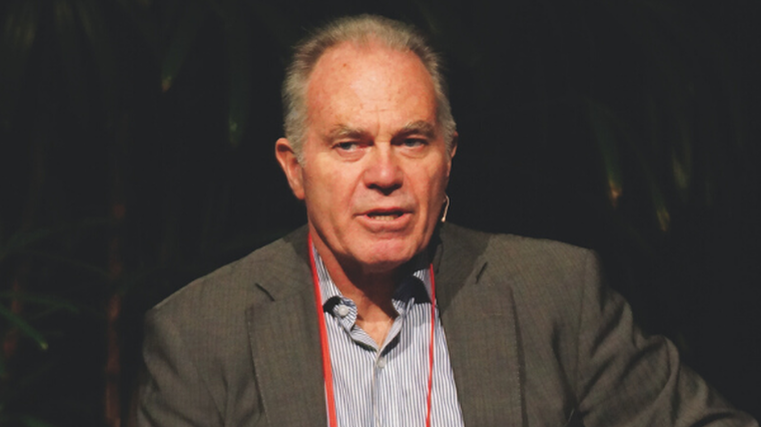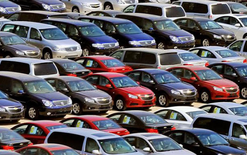Backing for clean cars ‘effective’

The government’s clean car programme has been flagged up as the key issue for the automotive industry this year.
And David Vinsen, chief executive of the Imported Motor Vehicle Industry Association (VIA), emphasises that will continue to be the case “for the foreseeable future”.
“The government unexpectedly implemented the incentive phase of the clean car discount scheme in mid-2021, to encourage the uptake of EVs,” he says.
“This was able to be introduced with little notice as no legislation was required. It was just a case of the government announcing the incentives.
“As we had predicted, the market was distorted by the incentives with the prices of used EVs at auction in Japan increasing overnight to match the incentive being offered.”
In his annual report to VIA’s annual general meeting, Vinsen, pictured, describes this as a “net transfer of wealth from New Zealand to Japanese dealers”.
The penalty phase of the programme was then implemented in April 2022 after the necessary legislation had been passed.
Late in 2021, following a presentation, debate, survey and vote, VIA decided to adopt a policy of supporting the clean car programme, instead of opposing it.
“The rationale was to accept the inevitable implementation of the programme, while still maintaining a ‘seat at the table’ by continuing to liaise closely with the minister, relevant government departments and officials,” explains Vinsen.
“This has been an effective policy strategy. VIA’s decision was well-received by the minister enabling us to negotiate to have the more draconian penalties severely reduced.”
VIA convened a working group of key stakeholders to liaise with officials at Waka Kotahi to provide the best possible information and advice on implementing the scheme.
In addition, the association has been engaged in researching and providing accurate emissions and fuel-economy information to ensure accurate penalties are charged. Vinsen continues to be a member of the Minister of Transport’s clean car sector leadership group, meeting monthly with Michael Wood and his senior officials.
“This is an important channel enabling VIA to have direct access to the minister on a regular basis.”
The clean car standard, meanwhile, will be implemented from 2023. This will further influence the market – in effect “doubling” the clean car discount with both penalties and incentives.
VIA and its stakeholder group are now working with officials at the transport agency and the Ministry of Transport on developing the procedure for implementation, and to improve the accuracy and comprehensiveness of information used to calculate incentives and penalties.
“VIA made a submission and appeared before the parliamentary select committee on the clean car programme,” adds Vinsen.
“In preparation for this, we had briefed all relevant parliamentarians of our position and concerns – the minister, transport spokespeople for the Greens, National and Act.”
On top of all this, the government’s emissions reduction plan (ERP) was published on May 16 with a strong focus on transport-related emissions.
“The clean car programme is the government’s principal initiative in this area,” says Vinsen. “VIA liaised and worked with the climate change commissioner and his staff, as well as transport officials responsible for contributing to the ERP.
“Following the announcement of the ERP, the government’s 2022 budget allocated considerable funds to accelerate and expand the clean car programme, as well as a trial initiative for the scrappage of less-efficient vehicles.
“VIA has long advocated for a fleet-management strategy aiming at improving the overall fleet over time, rather than just trying to control imports. This trial scrappage scheme may be the start of such a strategy.”
The association continues to be involved in consulting with government officials on EVs and related issues.
This is the forum in which the minister’s clean car sector leadership group deals with matters such as the development of standards, the charging network, and the curriculum for training technicians and first responders. VIA is also working with Standards NZ on EV charging standards.
Product stewardship
Tyres have now been declared a “priority product” under the Waste Minimisation Act.
This means that an accredited product stewardship scheme be implemented.
Vinsen says: “The reason for VIA’s involvement is that levies are to be charged on the importation of every tyre imported – loose or fitted to a vehicle, new or used – and we want to ensure the levies are fair and easily administered.
“This initiative is the culmination of more than 18 years’ work by governments and industry groups, but it was not until the government mandated tyres as a priority product that it came to fruition.”
Vinsen represents VIA as a trustee of Auto Stewardship NZ. As well as tyres, it is likely other automotive components will also be included in similar schemes, such as batteries and greenhouse gases. “The scrappage scheme trial may contribute to end-of-life vehicles being included.”
Covid-19 & biosecurity
Two other key issues highlighted in Vinsen’s annual report are coronavirus and biosecurity.
With the pandemic, VIA has continued to monitor government regulations and announcements, prepared alerts to advise the industry of changing requirements, and has convened, facilitated and chaired working groups comprising key industry experts and government officials, “as we had done the previous year”
As for protecting our borders, the Ministry for Primary Industries has decided to keep its biosecurity functions for imported vehicles onshore in New Zealand – and not to return to Japan.
“This decision emphasises the responsibility of the industry’s border-inspection organisations to ensure they have the best possible systems and procedures in place in Japan,” says Vinsen.
“VIA has continued to liaise closely with industry and government agencies to ensure biosecurity risks associated with importing vehicles are minimised, and that a commercial, pragmatic system was implemented.”
Working for industry
The association continues to be involved in research, consultations and submissions on all issues affecting the used-vehicle import industry.
Additional issues it has dealt with include the 760MHz bandwidth, which includes liaising with officials from Waka Kotahi and the Ministry of Business, Innovation and Employment, the Takata airbag recall, vehicle type approvals, motor industry training restructure, lost or delayed deregistration papers, entry certification, the right to repair and repair certificates.
Others are researching data from Japan’s ministry of land, infrastructure, transport and tourism for fuel-economy standards, researching standards and specifications for electronic stability control, safety ratings and the responsible lending code.





